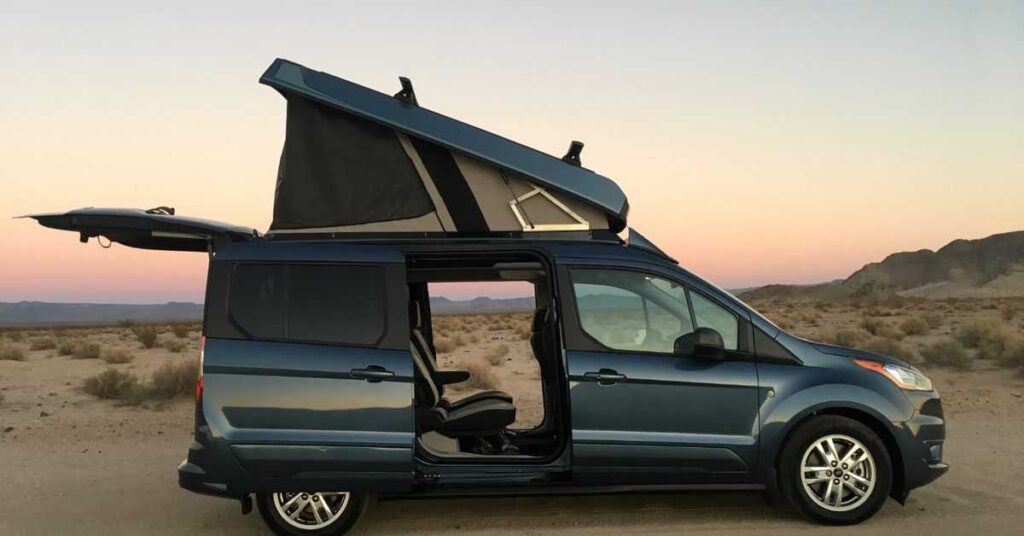Acknowledging
The rise of adventurous living has introduced new alternatives to living arrangements which many landlords are deliberately hosting as a camper. No matter, if your family members are seeking an independent house or your friend needs an affordable house this ideal is best for all. However, living in a camper Recreational Vehicle (RV) is illegal even if it is on your land in most areas of the USA. A person might have questions like Can someone live in a camper on my property? Can you live in a camper? How to live in a camper? Understanding some practicalities & legalities are so crucial therefore before moving ahead take a sure step or know which campers you can live in.
Local Regulations: Don’t get captured Daydreaming
Can someone live in a camper on my property? Or can you live in a camper? Yes, of course, living full-time in an RV can be exciting but local laws should be navigated as it is an essential element. However, these regulations may dictate various land uses and other location-related factors.
- Obtaining Permits: As per local regulations of that specific area an occupancy permit will be needed. Furthermore, septic systems off-grid and electrical hookups are also needed.
- Zoning Classifications: Having a specific code for that particular zone is necessary. It has different classifications such as agricultural, residential, and commercial which may vary the regulations of the camper RV.
Living in a Camper on a Property in New York:
Further, exploring the camper RV living on the Adirondack property. It might have permissible private things, land which can be more complex such as:
- Local & State Law: This law has some wiggle rooms that depend on Local & State ordinances. Some Suburbs and large cities often provide short-term offers for camper RV living which is about 30 days, it applies strictly.
- Technically Illegal: The Housing & Urban Developing (HUD) Department of USA has not classified camper RV to be a permanent resident. Despite making a year of camper living is allowed in many areas.
- Hope for Rural Areas: Smaller but rural countries mostly tend to offer easy and relaxed ordinances. Therefore, living in a camper RV is allowed in these areas until no one has complaints. However, some countries provide camper RV for long-term permanent housing as well as with their mobile homes. In certain cases, they can live in a camper only when their RV has legally passed inspections and has permits.
Safety & Building Codes (Permitted Areas):
Having regulations of living in a camper full-time at your specific location may contain some typical safety regulations.
- Living Conditions: Opening & Closing Windows, carbon monoxide detectors, and smoke alarms are most important for your safety purpose.
- Structural Integrity: Your camper RV should be dry while having good cooling & heating, and must be free of mildew & mold. Further, you should have a defense system against rodents or insects too.
- Utilities: Here you will need proper sewage disposal, for instance, a septic tank that is connected to the sewage system of that city. The proper source of clean water for usage and a safe electrical hookup should be placed underground and should be connected to a utility box.
In case, anyone does not comply with any of these regulations, it could result in large or small fines depending on local authorities.
Practical & Utilities Considerations:
Campers you can live in should have a setting of full-time practical considerations:
- Sanitation & Safety: They ensure perfect electrical safety and waste disposal systems according to the area. Regularly maintaining the camper may avoid further inconvenience and fire safety is also important.
- Utility Connections: Alternative options should be considered that may connect your camper with the proper existing utilities of that area. Your property must have solutions like solar power panels and composting toilets.
- Community Regulations: A Homeowners Association (HOA) community will allow you to add their rules so other residents may not have any conflicts with you.
Thinking Above the Basics:
Once the practicalities & legalities are properly addressed, these factors should be considered:
- Noise or Privacy Concerns: Thinking about noise or privacy implications, you have to pay attention to both you & your camper.
- Potential Shock on the Property: Make sure how the camper is impacting your property and its market value.
- Long-Term Supply Maintenance: Planning for long-term maintenance of your camper is necessary and keeping them managed is also needed.
Making an Informed Decision:
Can someone live in a camper on my property? Yes, you can allow someone to live full-time in your RV camper on your property. This can be a rewarding or practical solution however navigating few practical & legal considerations are applied. Understanding local laws of that particular zone area, addressing challenges, and obtaining permits may create complaints & safe living arrangements. Therefore, consulting a professional or a local authority advisor will ensure legally informed decisions.
Adding Resources
- Legal Experts: Consulting a real estate advisor or attorney to deeply understand the local compliance and they will provide the best possible legal implications as per your needs
- Local Zoning Departments: Contacting the local office with specific detailed information about that area will help even better.
- Camper & RV Associations: The RV Industry Association (RVIA) is an organization that has complete guidance and information about living in a camper or RV.
Conclusions
In conclusion, living in a camper in your particular area or property offers cost-effective and flexible living solutions. Regardless, it may have some set of considerations & challenges. No matter what your aim is, whether you want a temporary home for yourself, family, or friends or consider living in a camper full-time. The arrangements have to be according to the local zone laws, must have proper utility connections, and cover all practical aspects that are necessary for camper living. Thus, by doing so you may prepare a comfortable plus legally approved living camper.
Frequently Asked Questions about Living in a Camper
1. Can someone live in a camper on their property?
The legal point to ensure while living in a camper on your property is under the regulation of that particular area. Some local zone areas allow some rules whereas others may be strict on them.
2. Which utilities should I connect to my living camper?
A comfortable living life style in a camper needs accessibility of water, electricity, and sewage disposal. Other campers may be equipped with off-grid living for long-term living.
3. Is it possible for a person to live in a camper for an entire year?
Living in a camper for an entire year is possible with proper preparation for insulation and extreme weather conditions. Ensuring the camper is completely equipped with everything for all seasons then it may include a cooling and heating system as well.
4. Give some advantages of living in a camper?
Living in a camper is easier as compared to traditional living. It is affordable and needs fewer utility bills and minimal taxes. Furthermore, it provides flexibility, and mobility to relocate yourself as per your needs.
5. Do they have any type of restrictions on living in a camper?
Some areas may restrict specific size, age, or conditions of your camper but others may not. So, it all depends on the local authorities of that particular area and the regulation may apply accordingly.









